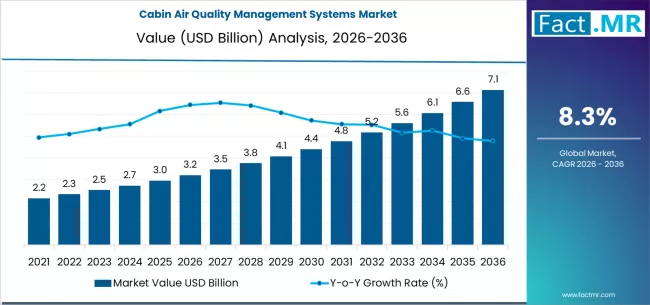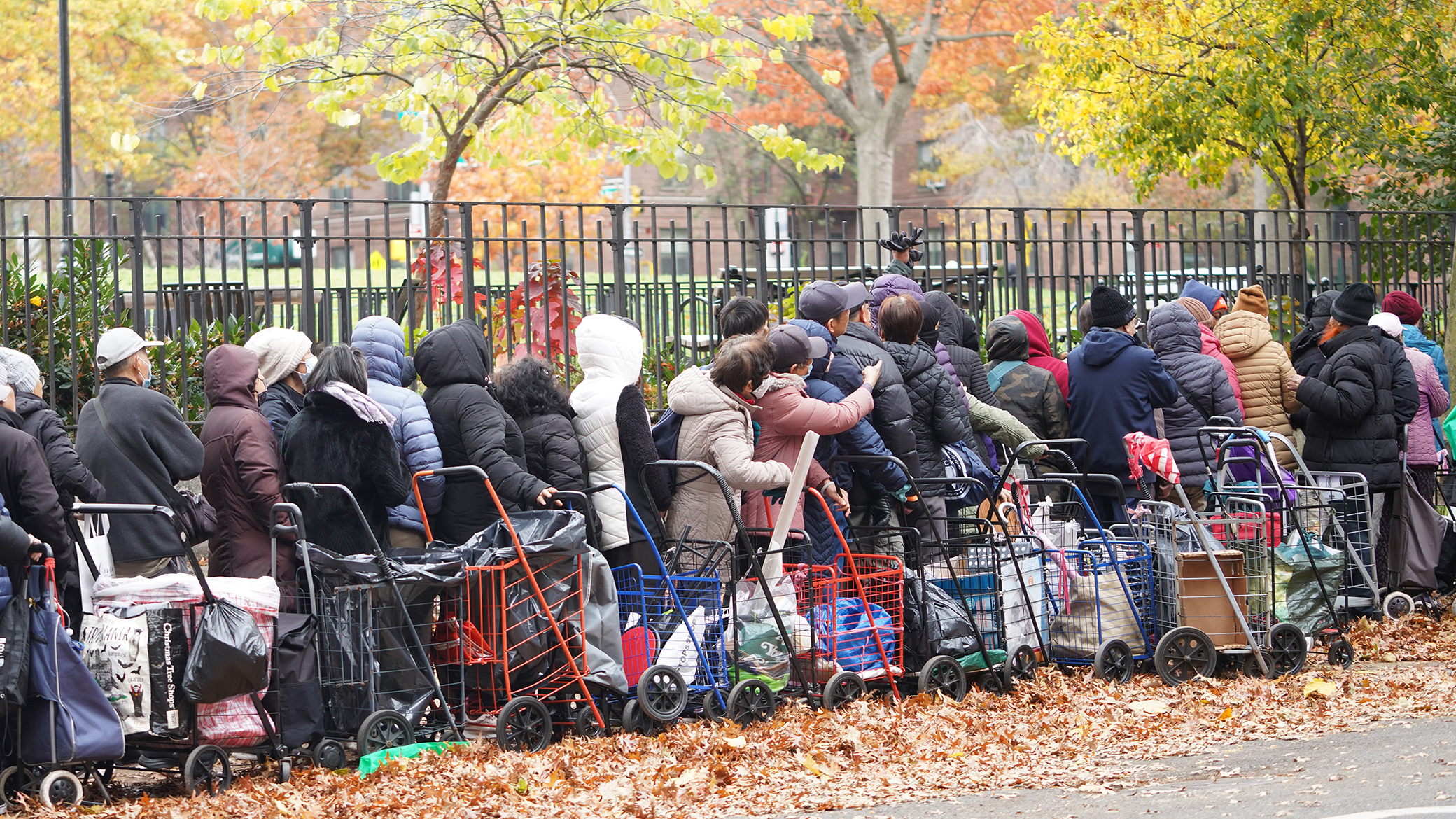Lawmaker proposes ‘Kanaiyah’s Law’ to change foster care hotel stays, requires more checks – WBFF

Report on Systemic Failures in Maryland’s Foster Care System and Alignment with Sustainable Development Goals
Executive Summary
This report details the circumstances surrounding the death of a 16-year-old in the care of the Maryland Department of Human Services (DHS) and the subsequent legislative response. The incident highlights profound systemic failures that are in direct conflict with multiple United Nations Sustainable Development Goals (SDGs), particularly those concerning child protection, institutional accountability, and health and well-being. An audit preceding the death revealed critical lapses in oversight, including the use of unlicensed hotel placements and a failure to conduct mandatory background checks, underscoring a governance crisis that jeopardizes the state’s most vulnerable children.
Systemic Deficiencies and Institutional Failures
Incident: Death of Kanaiyah Ward
On September 22, Kanaiyah Ward, a 16-year-old under the supervision of DHS, was found deceased in a Baltimore hotel from a suspected overdose. At the time of her death, Ward was supposed to be monitored by a one-on-one aide, whose absence is currently under investigation. This event serves as a critical indicator of the system’s failure to uphold its duty of care, directly contravening the principles of SDG 3 (Good Health and Well-being) and SDG 16 (Peace, Justice and Strong Institutions).
State Audit Findings
A state audit published one week prior to Ward’s death exposed severe deficiencies within the Social Services Administration (SSA). These findings illustrate a lack of accountable and transparent institutions, as called for in SDG 16, Target 16.6. Key findings include:
- Nearly 300 children were housed in hotels under the supervision of unlicensed providers.
- The SSA lacked formal procedures to ensure criminal background checks were conducted for vendors providing direct services to children.
- Children in foster care were found to be residing at the same addresses as individuals on the state’s registered sex offender list.
Legislative Response and Path to Reform
Proposed Legislation: Kanaiyah’s Law
In response to the systemic failures, Delegate Mike Griffith has announced his intention to introduce the “Never Again Act of 2026 – Kanaiyah’s Law.” The proposed legislation is a direct attempt to build effective and accountable institutions (SDG 16) and ensure the safety and well-being of children in state care (SDG 3, SDG 11).
Key Provisions of the Proposed Act
- Prohibit the placement of foster children in hotels for more than one week without explicit authorization from the Secretary of the Department of Human Services.
- Mandate comprehensive training, licensing, and criminal background checks for all one-on-one service providers.
- Grant DHS the legal authority to conduct continuous background checks and monitoring for all adults residing in guardianship homes where foster children are placed.
Implications for Sustainable Development Goals (SDGs)
The failures within Maryland’s foster care system represent a significant setback for the achievement of several core SDGs. The case of Kanaiyah Ward is not an isolated incident but a symptom of a system that fails to protect vulnerable populations, thereby undermining principles of justice, equality, and human dignity.
SDG 16: Peace, Justice and Strong Institutions
- Target 16.2: The state failed its primary responsibility to end abuse, exploitation, and all forms of violence against children. The lack of background checks and placement of children in unsafe environments is a direct violation of this target.
- Target 16.6: The audit findings reveal that the SSA is not an effective, accountable, or transparent institution. The proposed legislation seeks to rectify this by establishing clear protocols and accountability mechanisms.
SDG 3: Good Health and Well-being
- Target 3.5: The death from a suspected overdose points to a failure in strengthening the prevention and treatment of substance abuse for at-risk youth. The state has a responsibility to provide a supportive environment that promotes mental and physical health.
SDG 10: Reduced Inequalities
- Target 10.3: Foster children represent a marginalized and vulnerable group. The systemic failures demonstrate a denial of equal opportunity for safety and well-being, thereby increasing inequalities of outcome for these children.
SDG 11: Sustainable Cities and Communities
- Target 11.1: The practice of placing children in hotels is a failure to provide access to adequate, safe, and stable housing. This practice disrupts education, social integration, and overall development, contrary to the goal of creating inclusive and safe human settlements.
1. Which SDGs are addressed or connected to the issues highlighted in the article?
The article highlights systemic failures within the foster care system, leading to the tragic death of a teenager. These issues directly connect to several Sustainable Development Goals (SDGs) that focus on health, well-being, justice, equality, and safe living environments for vulnerable populations, particularly children.
-
SDG 3: Good Health and Well-being
This goal is relevant due to the death of 16-year-old Kanaiyah Ward from a suspected overdose. The article discusses the failure of the system to provide a safe environment and adequate supervision, which are essential for the physical and mental well-being of a child in foster care.
-
SDG 10: Reduced Inequalities
The article points to the marginalization of children in foster care. Del. Mike Griffith’s statement, “Too often, foster children are treated like second-class citizens, as if they don’t matter,” directly addresses the inequality and vulnerability this specific group faces. The system’s failures disproportionately affect these children, highlighting a need to reduce inequalities in protection and care.
-
SDG 11: Sustainable Cities and Communities
This goal’s focus on adequate and safe housing is pertinent because the article reveals that nearly 300 children were housed in hotels. Hotels are not a stable, safe, or adequate housing solution for children. The Department of Human Services’ commitment to “ending hotel stays in Maryland” underscores the recognition that this practice fails to provide a proper living environment.
-
SDG 16: Peace, Justice and Strong Institutions
This is the most central SDG to the article. The death of Kanaiyah Ward, the “scathing audit” of the Social Services Administration (SSA), the lack of background checks for providers, and the placement of children in homes with registered sex offenders all point to a failure of institutional accountability and justice. The proposed “Never Again Act” is a direct attempt to strengthen these institutions and protect children from violence, abuse, and neglect.
2. What specific targets under those SDGs can be identified based on the article’s content?
Based on the issues discussed, several specific SDG targets can be identified:
-
Under SDG 3: Good Health and Well-being
- Target 3.5: Strengthen the prevention and treatment of substance abuse. This is directly relevant as Kanaiyah Ward’s death was from a “suspected overdose,” indicating a failure in preventing substance abuse among a highly vulnerable youth.
-
Under SDG 10: Reduced Inequalities
- Target 10.2: By 2030, empower and promote the social, economic and political inclusion of all, irrespective of… other status. Children in foster care represent a vulnerable group (“other status”). The systemic failures described in the article demonstrate a lack of social protection and inclusion for them.
-
Under SDG 11: Sustainable Cities and Communities
- Target 11.1: By 2030, ensure access for all to adequate, safe and affordable housing. The practice of housing nearly 300 foster children in hotels, as mentioned in the audit, is a clear failure to meet this target of providing adequate and safe housing.
-
Under SDG 16: Peace, Justice and Strong Institutions
- Target 16.2: End abuse, exploitation, trafficking and all forms of violence against and torture of children. The death of a child due to neglect, the lack of supervision by a “one-on-one aide,” and the finding that children lived with registered sex offenders are all severe failures to protect children from abuse, neglect, and exploitation.
- Target 16.6: Develop effective, accountable and transparent institutions at all levels. The audit revealing the SSA’s lack of procedures for background checks and the overall call for reform highlight a breakdown in institutional effectiveness and accountability. The proposed “Kanaiyah’s Law” aims to build these very mechanisms.
3. Are there any indicators mentioned or implied in the article that can be used to measure progress towards the identified targets?
The article implies several quantitative and qualitative indicators that could be used to measure progress:
-
For Target 11.1 (Adequate and safe housing):
- Indicator: The number of children in foster care placed in hotels. The article mentions “nearly 300 children in hotels,” and the agency’s commitment to “ending hotel stays” makes this a clear metric for progress.
- Indicator: The duration of hotel stays. The proposed law aims to “prohibit placing foster care children in hotels for more than a week” without special authorization, making the length of stay a key performance indicator.
-
For Target 16.2 (End abuse and exploitation of children):
- Indicator: The number of children in guardianship homes living with adults who have not undergone continuous background checks. The article notes that DHS believes it lacks the authority for this, and the proposed law would grant it, making this a measurable action.
- Indicator: Mortality rate of children in foster care, particularly due to preventable causes like neglect or overdose. The death of Kanaiyah Ward is the central event, and preventing similar tragedies is the ultimate goal.
-
For Target 16.6 (Effective and accountable institutions):
- Indicator: Percentage of one-on-one service providers for foster children who have undergone required training, licensing, and criminal background checks. The proposed law specifically calls for these requirements, making their implementation a direct measure of institutional improvement.
- Indicator: The number of contractors held accountable for failing to meet standards of care. The DHS statement, “we will hold our contractors accountable,” suggests this as a measure of institutional enforcement.
4. SDGs, Targets, and Indicators Table
| SDGs | Targets | Indicators Identified in the Article |
|---|---|---|
| SDG 3: Good Health and Well-being | 3.5: Strengthen the prevention and treatment of substance abuse. | Number of substance abuse-related deaths (e.g., suspected overdose) among youth in foster care. |
| SDG 10: Reduced Inequalities | 10.2: Empower and promote the social inclusion of all, irrespective of other status. | Implementation of laws and policies (like the proposed “Kanaiyah’s Law”) that provide specific protections for vulnerable groups like foster children. |
| SDG 11: Sustainable Cities and Communities | 11.1: Ensure access for all to adequate, safe and affordable housing. | – Number of foster children housed in hotels. – Average duration of hotel stays for foster children. |
| SDG 16: Peace, Justice and Strong Institutions | 16.2: End abuse, exploitation, and all forms of violence against children. | – Mortality rate of children in foster care due to neglect or violence. – Number of children placed in homes where adults have not passed continuous background checks. |
| 16.6: Develop effective, accountable and transparent institutions. | – Percentage of one-on-one providers with required training, licensing, and background checks. – Number of vendors/contractors held accountable for failing to meet standards of care. |
Source: foxbaltimore.com

What is Your Reaction?
 Like
0
Like
0
 Dislike
0
Dislike
0
 Love
0
Love
0
 Funny
0
Funny
0
 Angry
0
Angry
0
 Sad
0
Sad
0
 Wow
0
Wow
0









































































